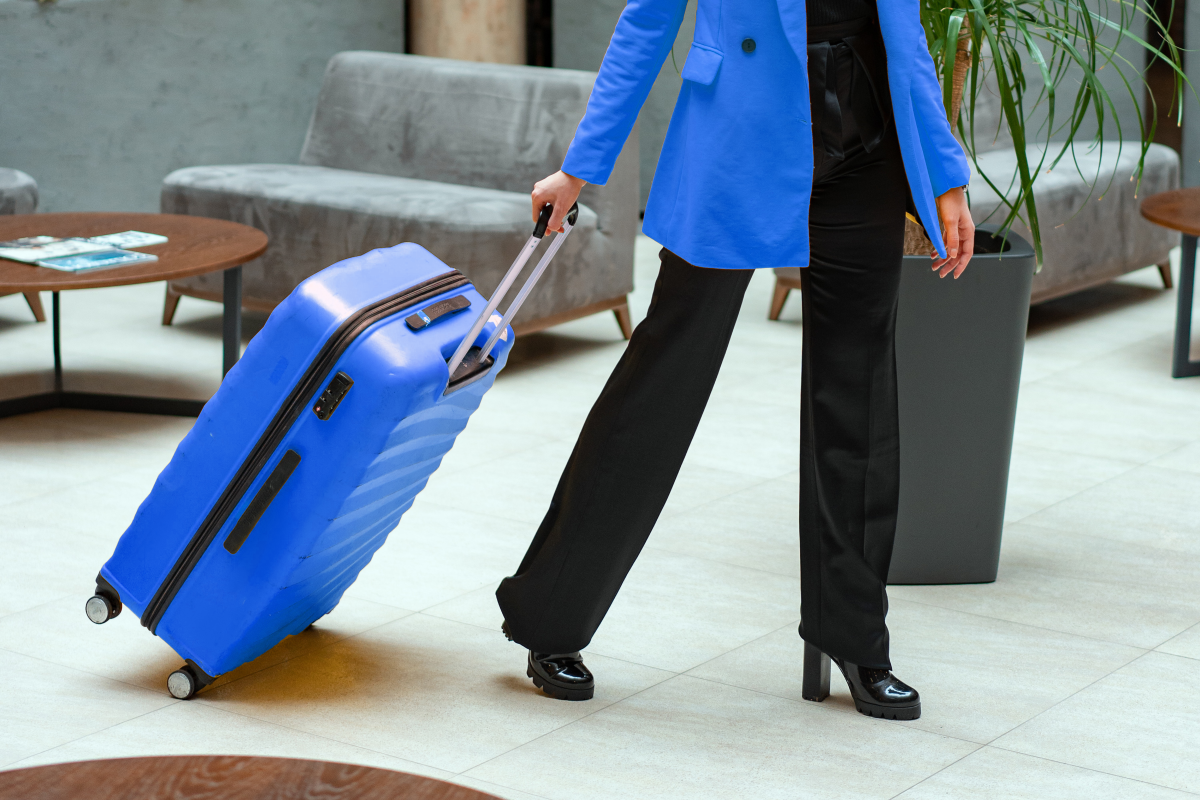Skift Take
As we navigate a world transformed by technology, the hospitality industry stands at a crossroads. Success hinges not solely on adopting digital solutions, but on personalizing them with the human touch, blurring the lines between the digital and tangible realms. The challenge for hospitality leaders is clear: adopt, adapt, and excel.
This sponsored content was created in collaboration with a Skift partner.
Travelers today are inundated with choices. With a myriad of options at their fingertips, they’ve become increasingly selective about the properties they stay at and the experiences they choose. Factor in the growing influence of digital technologies, and it’s clear that the demand for personalized experiences accessible with a tap or swipe is more prevalent than ever.
At the heart of this evolution lies the need for a cohesive and connected technology platform. According to Skift Research’s State of Travel 2022 report, shifting guest preferences have opened up new avenues for technology adoption, creating more opportunities for growth in the industry. By adapting to the new digital terrain, hotels can offer an exceptional guest experience, cementing their place in a constantly changing market.
SkiftX spoke with Tristan Gadsby, CEO and founder of Alliants, to understand the key tech trends redefining the guest experience today and how hotels can leverage them to succeed in the face of evolving guest expectations.
SkiftX: The pandemic has fueled the adoption of new digital technologies across the hospitality industry. What are some of the trends that have emerged over the last few years that are here to stay?
Tristan Gadsby: Looking back, the pandemic will be remembered as a time that accelerated the industry to make long-overdue investments in technology. One of the key trends that came out of it was messaging, which emerged as a powerful method to communicate with guests through channels where they already spend time, such as WhatsApp and WeChat. We saw message volumes soar up to three times their pre-pandemic level, and hotels that embraced it experienced remarkable increases in customer satisfaction.
Contactless experiences have also gained momentum, particularly in urban properties and among loyal customers using hotel apps. Another trend that took center stage was the use of artificial intelligence. Despite its image as a new technology, AI has actually been present in the background for quite some time. The pandemic has simply brought it into sharper focus. The ability of AI to automate routine tasks, personalize experiences, and streamline operations makes it a powerful tool in the hospitality sector, a trend that’s undoubtedly here to stay.
SkiftX: How can hotels leverage these trends to optimize the guest journey and stay ahead of evolving guest expectations?
Gadsby: Hotels should focus on three key components: The first is understanding the customer. Hotels need to have a clear profile of each guest, not just the primary booker, as their needs may differ. And the profile should cover more than just bedding preferences — it should encompass all aspects of their journey, including dining and spa preferences.
The second aspect is understanding the context, such as the guest persona and their timeline. An individual traveling on business will have different needs and preferences compared to someone on a family trip or a couple’s weekend getaway. Additionally, it’s important to understand where guests are in their journey.
The third aspect is channel relevance. Hotels need to utilize communication channels that are most relevant to the customer. Email response rates are at an all-time low, so adopting channels like WhatsApp, SMS, or hotel apps can improve guest communication.
SkiftX: How can hotels better utilize data, analytics, and insights to create stronger loyalty programs and more personalized experiences?
Gadsby: Data often remains siloed across hotels. Properties must ensure they’re not just collecting data but acting upon it. Taking a pragmatic approach here is essential. It’s important to understand the context of a guest’s stay while keeping in mind that preferences may vary depending on location or circumstances. By developing actionable profiles, hotels can make more informed recommendations, identify the next best move, and understand potential flight risks. At the same time, data security and privacy should never be overlooked. The industry must invest in adopting standards like ISO 27001 — a global benchmark for data protection — to ensure the safe handling and use of such information.
SkiftX: With artificial intelligence getting significant attention lately, how can AI technologies benefit the guest experience?
Gadsby: We’ve been using AI in hospitality for the past five years across a number of use cases, including translations, matching offers to customers, and chatbots that answer approximately 15 percent of messages. These applications have improved guest experiences, loyalty, and conversion rates.
ChatGPT is a step change in capability and is being deployed in several new areas. As it relates to the hotel industry, I believe it can boost employee efficiency and provide faster responses by supplementing large language models with hotel compendiums and context, allowing it to effectively answer more guest queries. The term “whisper bot” has been used for that.
Another application is suggesting itineraries based on customers’ interests and timelines, as well as offering personalized recommendations to enhance their stay. It can also automate tasks, such as creating requests from conversations, like a digital ticket for towel delivery for example.
SkiftX: Considering Alliants’ messaging-first approach, can you share some insights on how this strategy effectively bridges the communication gap between hotels and guests to create an omnichannel guest experience?
Gadsby: Most guests don’t rely solely on hotel apps for interaction. A messaging-first approach bridges the communication gap between hotels and guests by hiding the complexity of systems needed to operate a hotel, as well as managing various departments behind the scenes, giving guests a simple and user-friendly experience.
Ultimately, having a conversation with a customer helps build relationships. Just like how we switch between SMS, WhatsApp, or other channels when communicating with friends and family, hotels can also provide an omnichannel experience by leveraging these platforms.
SkiftX: How can hotels use tech to leverage ancillary revenue opportunities to increase profitability without compromising the quality of their core offerings?
Gadsby: The key is to keep it simple and make it easy for customers to spend money. One approach is to ensure that the content related to ancillary products is easily discoverable online, as it’s often been buried or only available in PDFs. In the luxury space, this can include exclusive access to local events or chef’s table experiences in signature restaurants.
Another way is to use messaging as a productive channel for transactions. By making it easy for customers to inquire about spa availability or receive activity recommendations, hotels can send rich messages with simple calls to action, encouraging guests to take advantage of additional services.
SkiftX: Alliants has a 13-year track record in delivering digital transformation strategies to hotels in the luxury space. How can these learnings be applied to elevate the guest experience in other hotel categories, such as mid-level or four-star properties?
Gadsby: This is where AI and staff augmentation tools can come into play. Digital channels offer a way to improve the guest experience through automation, with some features now seen as essential, such as check-in and room access using digital keys, as well as check-out with folio details and payments.
In addition to these improvements, personalizing the guest experience can also elevate their offerings. By understanding the profile and preferences of the guests, hotels can facilitate additional elements such as in-house restaurant bookings to avoid disappointment. Another example of personalization in this category is the incorporation of electric vehicle charging, as seen with Mollies, a Soho House-inspired motel in the UK. By adopting these strategies from luxury properties and tailoring them to fit their specific market, mid-level and four-star hotels can significantly improve the guest experience.
SkiftX: What’s one key takeaway you’d give to hospitality leaders who want to invest more in technology to enhance the guest experience?
Gadsby: Technology alone won’t deliver the ROI. It’s essential for the entire organization, including the operations, marketing, and technology teams, to fully adopt and embrace the new solution. These experiences cannot come to life without their involvement, as hospitality remains an inherently human business. Despite advances in generative AI, it cannot replace tasks like making beds or cleaning rooms. The human touch is still very much needed in the industry, so it’s important not to lose sight of that.
For more information about Alliants, visit Alliants.com.
This content was created collaboratively by Alliants and Skift’s branded content studio, SkiftX.
Have a confidential tip for Skift? Get in touch
Tags: artificial intelligence, guest experience, SkiftX Showcase: Hospitality, the prompt, travel technology


